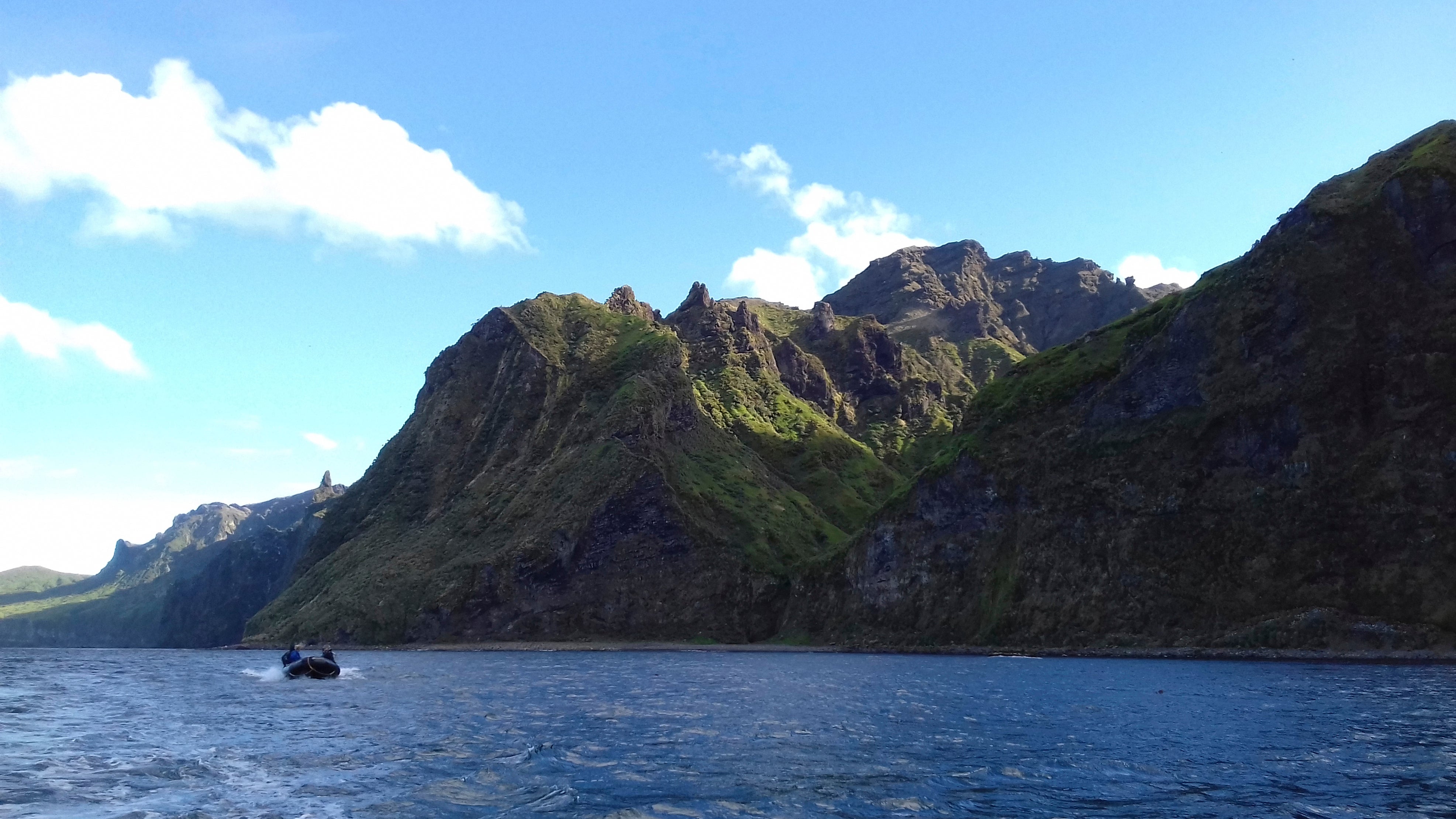Remote working: Job available on one of world’s most isolated islands
New hires will have six teammates and eight million birds for company

For many, remote working conjures up images of idly tapping away at a laptop on a sunny beach but a job on the rainy and windswept Gough Island brings a whole new meaning to the term.
With no permanent population, the island, which sits in the middle of the southern Atlantic Ocean 2,400 kilometres away from the African mainland, is the world’s most remote places. The only way to reach it is by a seven day-boat journey from South Africa.
But if that sounds like paradise to you, the Royal Society for the Protection of Birds is looking for a new field officer to help carry out research on the 8 million birds that make the island their home. A successful applicant will sign up for 15 months, which will include roughly two months of training before being deployed.
The society is looking for a “highly motivated and disciplined candidate with relevant fieldwork skills and a keen interest in wildlife, who can adapt well to small island living in a challenging and remote sub-Antarctic environment”.
Other than the millions of birds for company, any new hires will be joining a team of seven, replacing Rebekah Goodwill whose term comes to an end in September.
Speaking to the BBC, Ms Goodwill warned that applicants would need to be willing to put up with a lack of fresh fruit and vegetables. To avoid the biosecurity risk of foreign plants spreading on the island, food is frozen in two walk-in freezers, stocked once a year when old workers leave and new workers arrive.
“One’s full of frozen vegetables and the other’s basically full of frozen meat and then we’ve got lots of tinned frozen fruit and veg,” Ms Goodwill said.
“They give us a year’s worth of supply of food during that two-week takeover time, and we live off it for the rest of the year.”
Lucy Dorman, another worker on the island told the BBC: “It was definitely one thing they stressed for us before we came – that for many people, the lack of food and the lack of fresh food is significant.”
"The main thing I certainly miss is just like a crunchy carrot, or being able to bite into a nice apple. Just some crunch, but apart from that - I don't feel like I'm really missing much."
Asked about the social isolation, Rebekah said it wasn’t too bad. “In an odd sort of way I kind of feel like I'm more connected to my friends and family here than I probably was when I worked up in Scotland," says Rebekah. With the internet available staying in touch isn’t hard.
The workers also help keep each other company. “It's a very nice community here so we're able to share stories, and learn from each other and support each other.”
Applicants who are interested have until Sunday 30 April to apply via the website.
Subscribe to Independent Premium to bookmark this article
Want to bookmark your favourite articles and stories to read or reference later? Start your Independent Premium subscription today.

Join our commenting forum
Join thought-provoking conversations, follow other Independent readers and see their replies